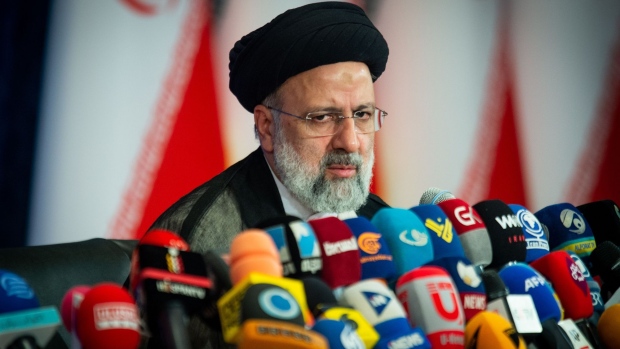Aug 8, 2022
US, Iran Face a Deadline After Nuclear Talks End Without Agreement
, Bloomberg News

(Bloomberg) --
The US and Iran have just weeks to decide whether they want to revive their nuclear deal, after European Union diplomats presented parties with a final draft accord that could deliver a major expansion of Iranian oil exports to global markets.
Negotiators wrapped up more than 15 months of talks in Vienna on Monday with a blueprint that requires the sign-off of US President Joe Biden and his Iranian counterpart Ebrahim Raisi, according to two European Union diplomats familiar with the process, who asked not to be identified in exchange for discussing sensitive topics.
The 2015 nuclear pact granted the Persian Gulf nation relief from punishing economic sanctions, including on oil sales, in exchange for limits to its nuclear program. It slowly unraveled after the Trump administration exited four years ago.
The potential deal on the table spells out the steps that Iran and the US would each take, with the former eliminating its stockpiles of enriched uranium in return for economic concessions from the latter.
EU foreign policy chief Josep Borrell will send a message telling leaders that they now have a few weeks to choose whether or not to re-enter the deal, according to the officials. US special envoy Robert Malley and Iran’s top negotiator are expected to return to their capitals within the next day, the officials said.
The draft text brokered by Borrell still needs to be comprehensively studied, after which Iran will answer whether an agreement is possible, the state-run Islamic Republic News Agency cited a foreign ministry official saying.
Tehran’s insistence that International Atomic Energy Agency inspectors end their investigation into decades-old nuclear activities remains a key sticking point that the talks failed to resolve. The IAEA has for years been probing traces of uranium found at several undeclared locations, with the Vienna-based agency’s board formally censuring Iran over its lack of cooperation in June.
Diplomats from China, France, Germany, Russia, the UK and US are mediating talks between the IAEA and Iran in an attempt to resolve the inquiry, according to the EU diplomats. But those discussions are continuing on a separate track and there’s no guarantee that the IAEA -- which operates as an independent nuclear auditor -- will agree to a compromise.
Iran ramped up its nuclear activities and restricted international monitoring of atomic sites after the US left the original deal, known as the Joint Comprehensive Plan of Action.
It has accumulated enough enriched uranium to fabricate multiple weapons, if the country’s leadership chose to militarize its atomic work. While Iran has always said its program is entirely peaceful, world powers pursued the 2015 agreement to verify the claim.
Iran’s growing stockpile of uranium enriched to 60% purity -- a level that IAEA inspectors call technically indistinguishable from weapons grade -- shows why sides need to urgently agree now rather than let an agreement fester in limbo, according to the EU officials.
But politics may prevent either side from taking up the EU proposals.
Diplomats say that Iran is keenly aware that relinquishing its nuclear gains will mean sacrificing negotiating leverage built up over years.
In the US -- where opposition to the nuclear pact is strong in both parties -- agreement with Iran could be tough for the Biden administration, whose Democrats already risk losing control of Congress in November’s midterm elections.
(Adds Borrell in the fifth paragraph, Iran in the sixth.)
©2022 Bloomberg L.P.







